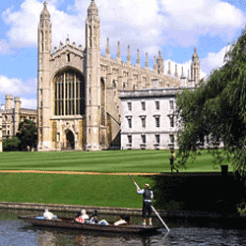Cambridge University needs to raise up to £300m to finance two major property projects in the city, and is considering issuing bonds for the first time in its 800-year history.
The university usually fundraises from its wealthy alumni, but because it requires between £200m and £300m for a new capital development in the northwest of the city and two redevelopments in the centre, it is looking at both borrowing from banks and issuing bonds.
It is expected to decide on a final course of action by the middle of this year.
Andrew Reid, director of finance at the university, said external financing would definitely be required because cashflows from its regular operations would be insufficient for such major expenditure.
“The projects have become clearer in cost and timing and the university is now considering raising significant sums of long-term funds – 30 to 50 years - via the fixed interest markets,” he said. “Bank financing, private placement or public bond issue are possible routes. An indicative range is £200m to £300m.”
The university has never borrowed material sums at any time in its history, though a number of the Cambridge Colleges have raised long-dated loans.
Bonds are a new departure for UK universities but quite common now in the US among Ivy League institutions. Several US universities have turned to the bonds market during the recession to try to counter losses in the value of their endowments. Harvard and Princeton have issued bonds of up to 30-year durations, while Stanford and Yale have five-year bonds on issue.
Cambridge University’s consolidated turnover is around £1.2bn and net assets £2.2m.









